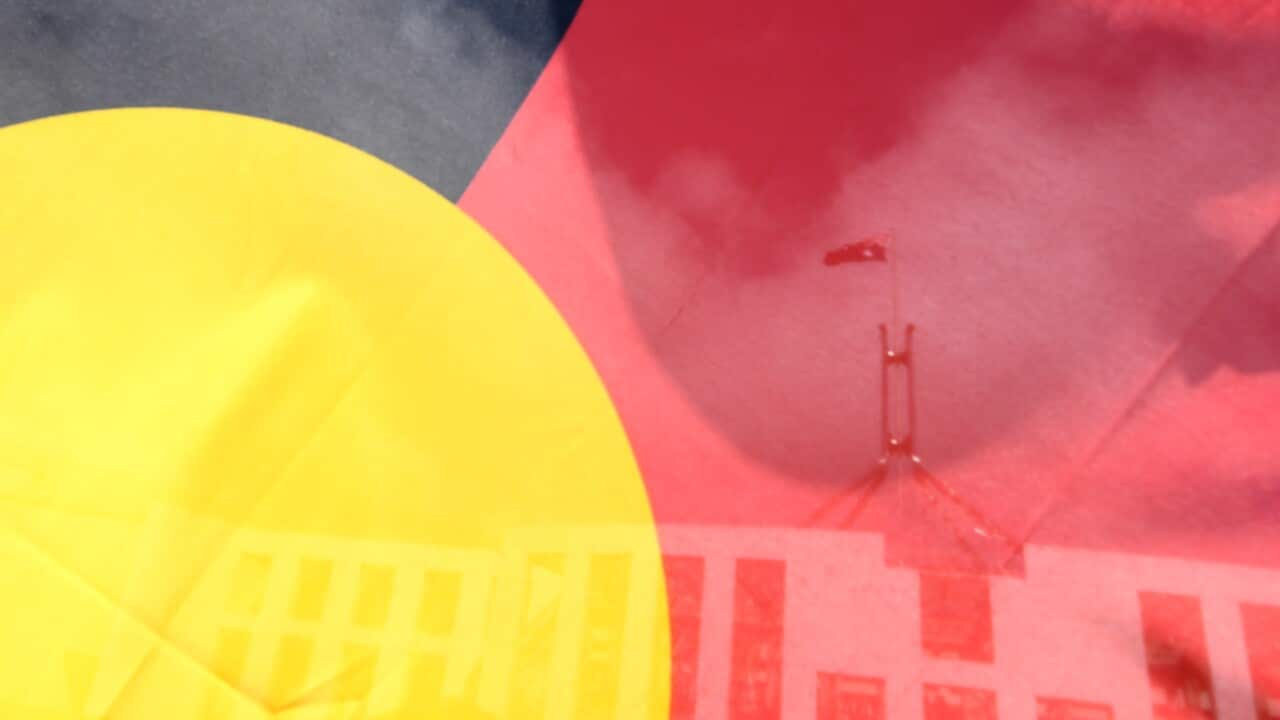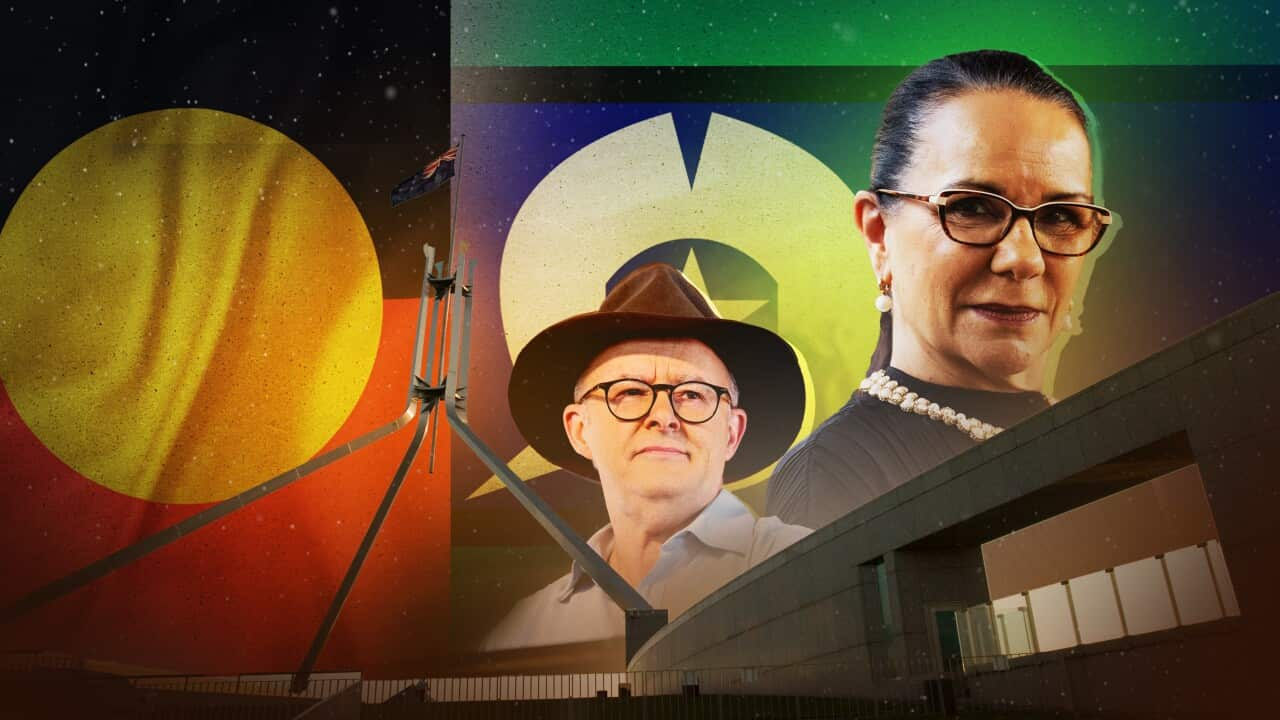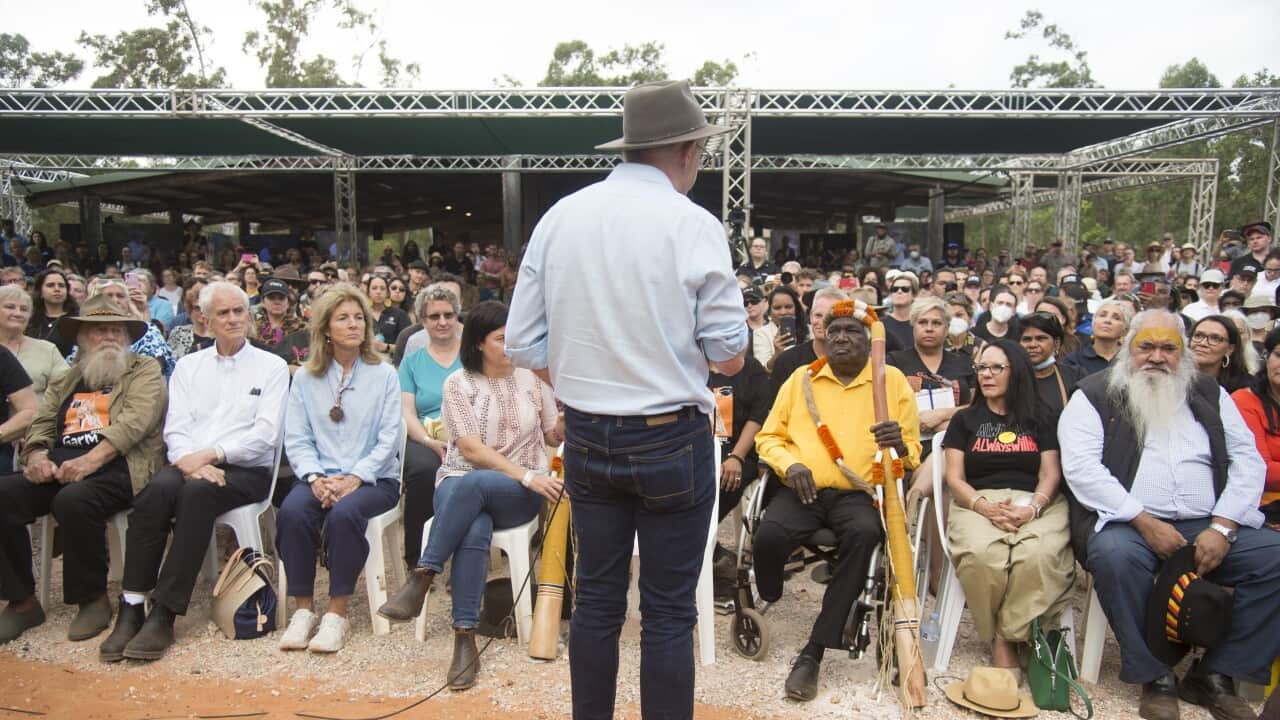KEY POINTS:
- A referendum on the Indigenous Voice to Parliament will be held this year.
- The Council for Aboriginal Reconciliation called for a similar vote in 2000.
- It was rejected by the Howard cabinet.
In 2023, Australians will vote in a referendum to enshrine an – but it's not the first time the country has considered constitutional recognition of First Nations peoples.
Two decades ago, the nation was on a similar journey.
In May 2000, hundreds of thousands of people walked across the Sydney Harbour Bridge in support of reconciliation.
Indigenous academic Marcia Langton recalls similar walks took place across the country.

People walked in locations across the country in 2000 to show a desire to seek reconciliation with Indigenous Australians. Source: AAP / Dean Lewins
“I think this time was really a turning point for the country.”
The Council for Aboriginal Reconciliation – now known as Reconciliation Australia – presented the former Howard government with a ‘roadmap for reconciliation’ with six key recommendations in that year.
Principal among them was a call for a national apology to the Stolen Generations; the implementation of a treaty; and a referendum to be held to change the constitution's preamble to recognise First Nations peoples.
Two years later, .
Cabinet papers from 2002, now released to the public, shed light as to why.
'Inappropriate and divisive': the government’s response
In rejecting the Council’s recommendations, Cabinet’s official position was that a national apology would be "inappropriate” as it could imply “that present generations are in some way responsible for the actions of earlier generations".
Calls for a treaty were rejected on the basis that it would be “divisive” and would “not solve the critical issues facing Indigenous Australians".
Calls for a referendum to change the preamble to the constitution to recognise Indigenous people as the first peoples of Australia was also rejected, on the basis that “a similar proposal was rejected by the Australian people” in the 1999 referendum.
A recommendation to remove section 25 of the constitution – which allows the States to prevent people of any race from voting in State elections – was “generally supported” by the Howard cabinet, which said it would consider putting the matter to a referendum at an “appropriate time".
In his executive summary, then minister for immigration and Indigenous affairs, Philip Ruddock, said a treaty would “undermine the concept of a single Australian nation".
“It would create legal uncertainty and would not best harness the positive environment in relation to reconciliation that currently exists,” he wrote.
The government instead highlighted its commitment to “practical reconciliation” through the form of “a record investment of $2.5 billion in Indigenous-specific programmes".
Professor Langton, who is the co-chair of the Voice to Parliament senior advisory group, recalled a “contempt” for Aboriginal people by the Howard government.
“‘Practical reconciliation’, that was John Howard’s mantra,” she said.
“Clearly, he was proposing that no good would come from any symbolic gesture, and yet, the conservatives defend Australian nationalism, the flag, and all the symbols that the Coalition stand for – and yet other people are not allowed to have their own symbols.”
What’s changed in 20 years?
Twenty years later, the both Coalition partners - the Liberals and Nationals - are campaigning against the Voice to Parliament, but support constitutional recognition of Aboriginal people.
While strongly adopted in both party rooms, the position is not uniform - a number of backbenchers will support the Voice.
In December, , to become an Independent, saying he “fundamentally disagreed” with the party’s position.
The Liberal Party is yet to take an official position – but many within its ranks have argued the Voice “lacks detail".
Indigenous Affairs Minister Linda Burney has said Australians “will be well informed” of how the Voice will operate before a referendum –.
Speaking at the Woodford Folk Festival last week,
“This will give respect to First Nations people, and it will enhance both the way Australians see ourselves, and the way we are seen by the world.”
What if the referendum is unsuccessful?
“How will Australians feel about themselves when they wake up after the referendum to find out the majority have voted against a voice to advise parliament on matters that affect Aboriginal and Torres Strait Islander people?” asked Professor Langton.
“They will forever be cast as what Asian leaders in the time of John Howard referred to Australia as: ‘the little white tribe.
“So, I’d have a good think about that.”
A national apology to the Stolen Generations was delivered by Kevin Rudd in 2007.
In May 2017, , with an invitation to the Australian people to “walk together” to enshrine a First Nations Voice to Parliament and establish a Makarrata Commission for the purpose of treaty-making and truth-telling.
Five years later, Australians stand on the precipice of taking the first steps towards that goal.




